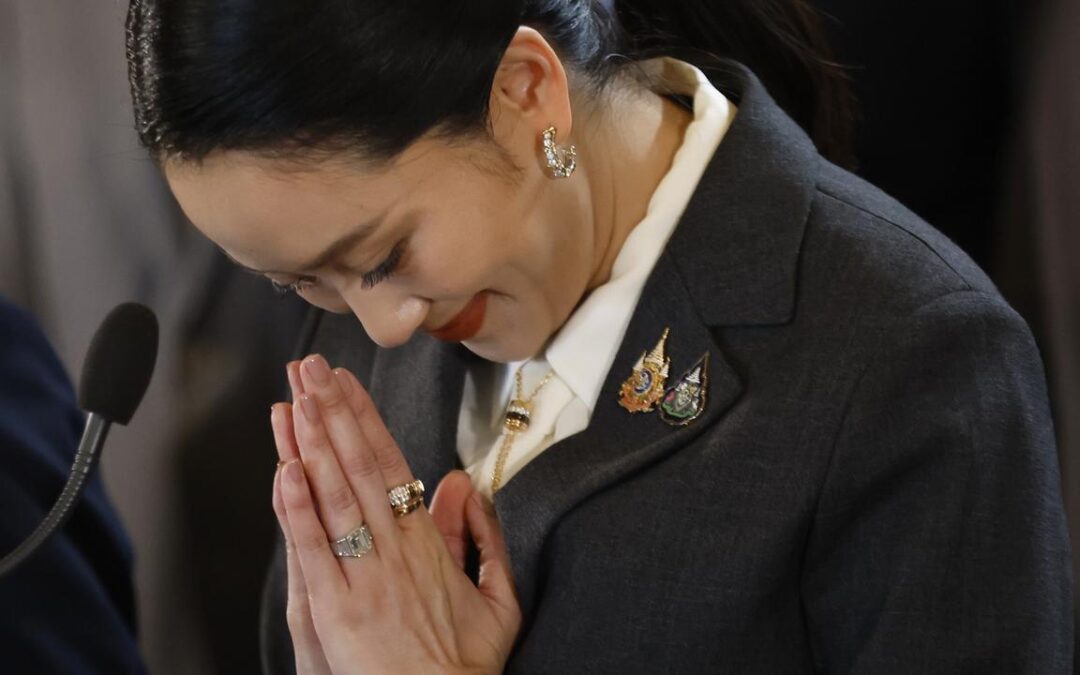
Thai PM removed by court, triggering power scramble
Thailand’s Constitutional Court has dismissed suspended prime minister Paetongtarn Shinawatra for an ethics violation, in another crushing blow to the Shinawatra political dynasty that triggered a flurry of deal-making aimed at filling the void.
Paetongtarn, who was Thailand’s youngest prime minister, becomes the sixth premier from or backed by the billionaire Shinawatra family to be removed by the military or judiciary in a tumultuous two-decade battle for power between the country’s warring elites.
The ruling paves the way for the election by parliament of a new prime minister, a process that could be drawn out, with Paetongtarn’s ruling Pheu Thai party losing bargaining power and facing a challenge to shore up a fragile alliance with a razor-thin majority.
The court said Paetongtarn violated ethics in a leaked June telephone call, during which she appeared to kowtow to Cambodia’s powerful former leader Hun Sen – until recently a close Shinawatra family ally.
At the time, both countries were on the brink of an armed conflict.
Fighting erupted weeks later, lasting five days.
Hours after the decision, the Bhumjaithai Party that had quit Paetongtarn’s coalition over the call emerged as the early frontrunner in forming a new government.
Its leader, Anutin Charnvirakul, shuttled across Bangkok to rally support from parties, with pledges that included dissolving parliament within four months.
The ruling brings a premature end to the premiership of the daughter and protégé of divisive tycoon Thaksin Shinawatra and will be a major test of his outsized political clout.
Paetongtarn, 39, was a political neophyte when she was abruptly thrust into power after the surprise dismissal of Srettha Thavisin by the same court.
In a 6-3 decision, the court said Paetongtarn had put her private interests before those of the nation and had damaged Thailand’s reputation.
“Due to a personal relationship that appeared aligned with Cambodia, the respondent was consistently willing to comply with or act in accordance with the wishes of the Cambodian side,” it said.
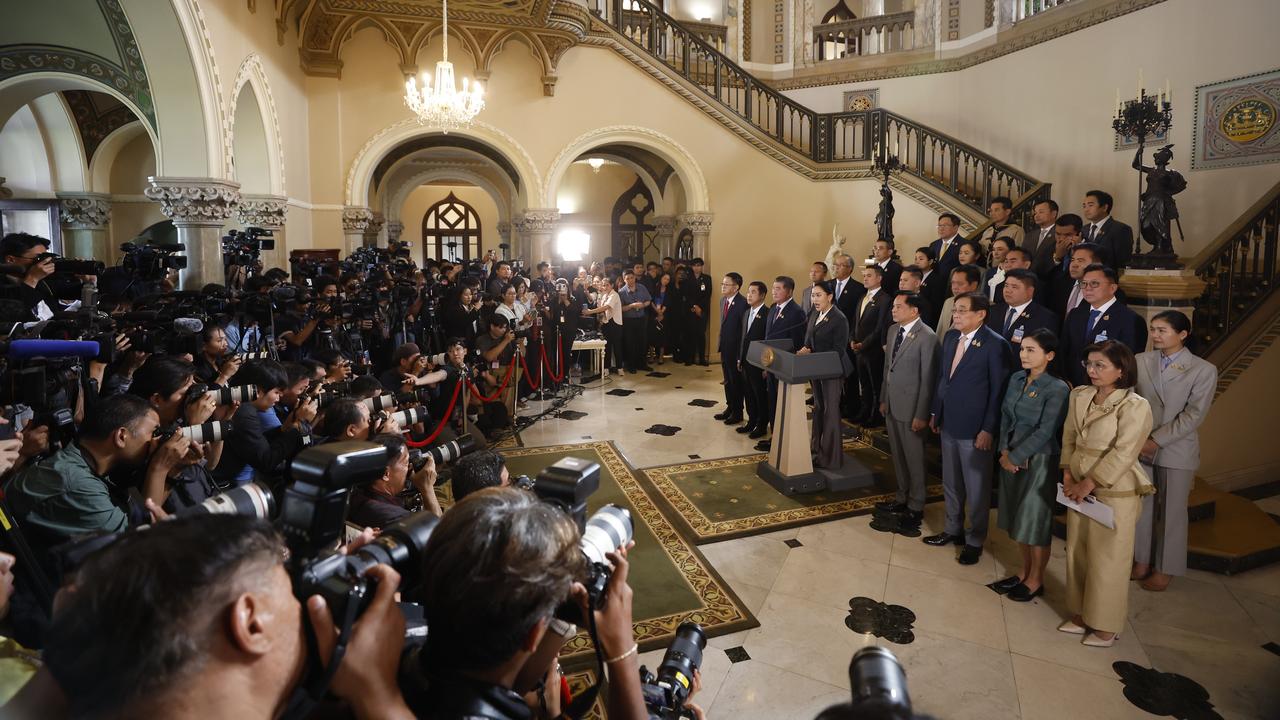
Reacting to the decision, Paetongtarn called for all parties to work together to bring political stability to Thailand.
“All I wanted was to safeguard the lives of people, whether soldiers or civilians. I was determined to do all I could to protect their lives before the violent clashes,” she said.
She is the fifth premier in 17 years to be removed by the Constitutional Court, underlining its central role in an intractable power struggle between the governments of the Shinawatra clan and a nexus of powerful conservatives and royalist generals with far-reaching influence.
The focus quickly shifted to who would replace Paetongtarn, with her father Thaksin expected to be in the thick of horse-trading between parties and other power-brokers to try to keep Pheu Thai at the helm.
Deputy premier Phumtham Wechayachai will be in charge as caretaker until a new prime minister is elected by parliament, which on Friday called a special session from September 3-5 but made no mention of a vote on a new premier.
Five people are eligible to become premier, with only one from Pheu Thai, 77-year-old Chaikasem Nitisiri, a former attorney general with limited cabinet experience, who has maintained a low profile.
Others include ex-premier Prayuth Chan-ocha, who has retired from politics and led a military coup against the last Pheu Thai government in 2014, and former deputy prime minister Anutin, who late on Friday said he already had the votes.
“This will be a government for the people, that will help find a way out for the country … and return the power to the people,” he said.
The ruling thrusts Thailand into more uncertainty, with potential for political deadlock at a time of simmering public unease over stalled reforms and a stuttering economy.
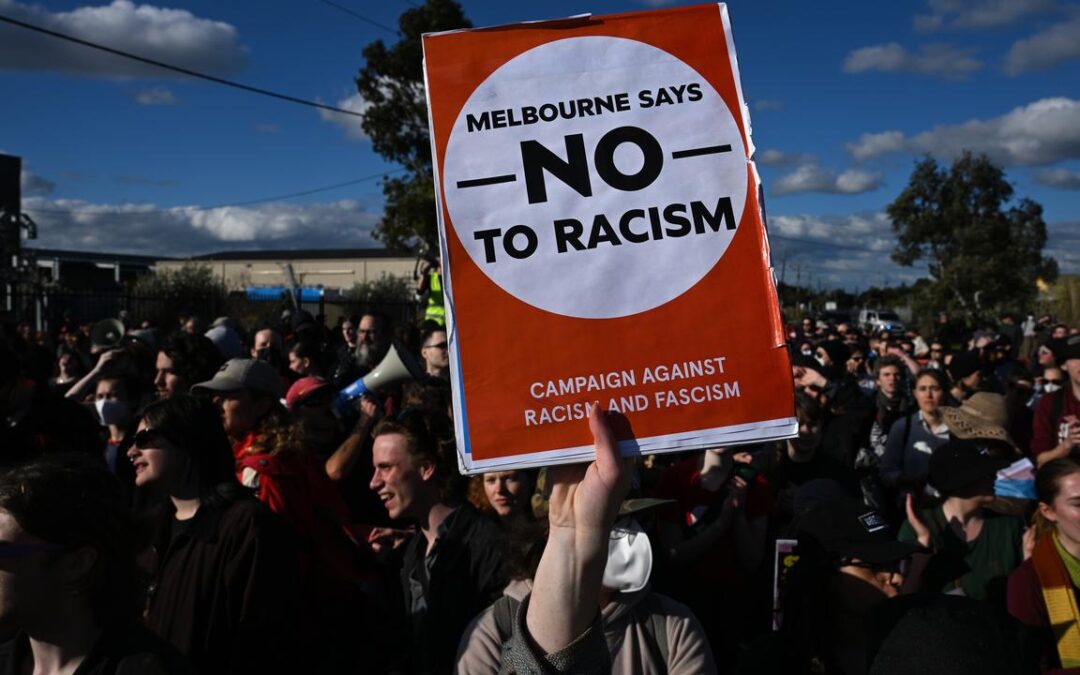
Social cohesion fears with weekend rallies set to clash
National anti-immigration rallies will be met with counter-marches in Sydney and Melbourne as political leaders call for calm.
Multicultural communities will hold their own protests in response to planned rallies on Sunday organised by March for Australia, a group linked to white-nationalist claims that people of European ancestry are being “replaced” by populations from other ethnic groups through migration.
Victorian Premier Jacinta Allan said she was proud her state was a place where people from diverse backgrounds are choosing to live and raise their families.
“I say this to every single Victorian, that every Victorian matters. Every Victorian belongs, and every Victorian is equal,” she said.
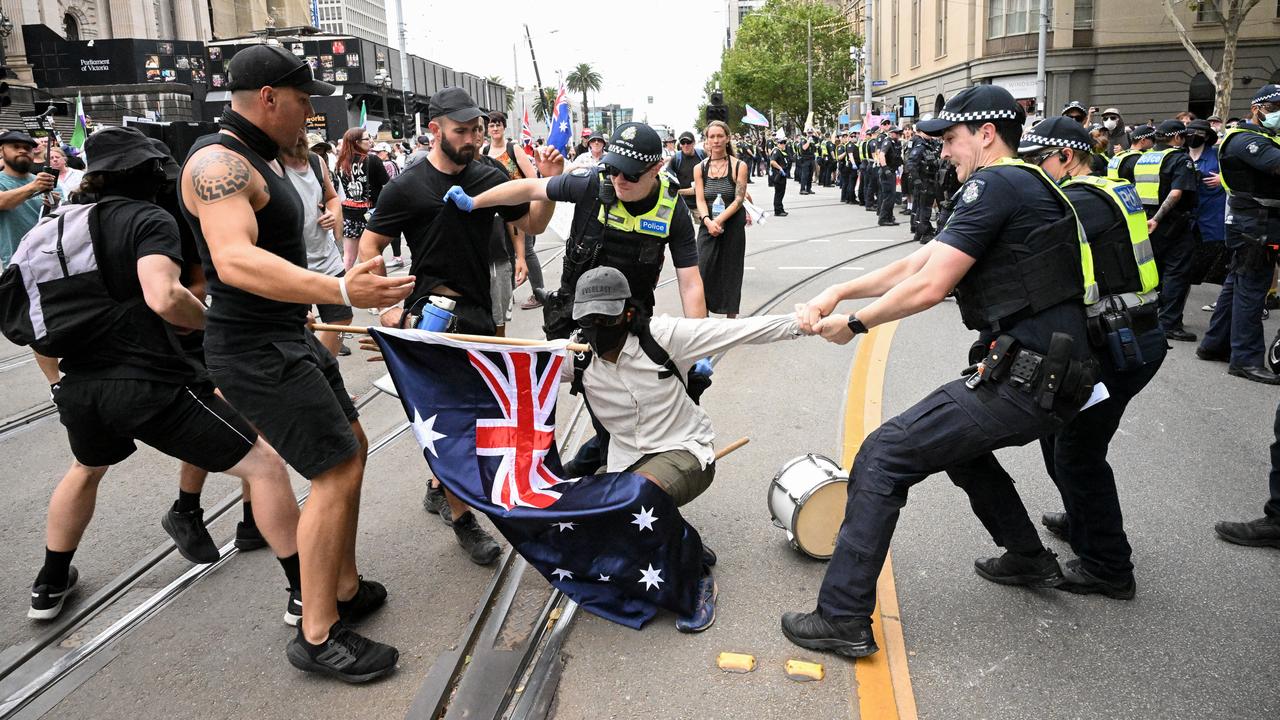
Counter-marches are also planned for Sydney’s CBD where up to 1000 police will be deployed, with NSW Premier Chris Minns saying the anti-immigration protest was the last thing the city needed.
“I’m also cognisant of the fact that when I do comment about protests, it seems to drive attendance, not discourage people,” he said.
Greens anti-racism spokesperson Mehreen Faruqi said the far right had become emboldened by sections of the media and political class.
“These rallies must be called out for what they are, acts of racist fearmongering and hate,” she said.
Australia has experienced an alarming spate of anti-Semitic and anti-Islamophobic attacks due to conflict in the Middle East, prompting fears social cohesion is being eroded.
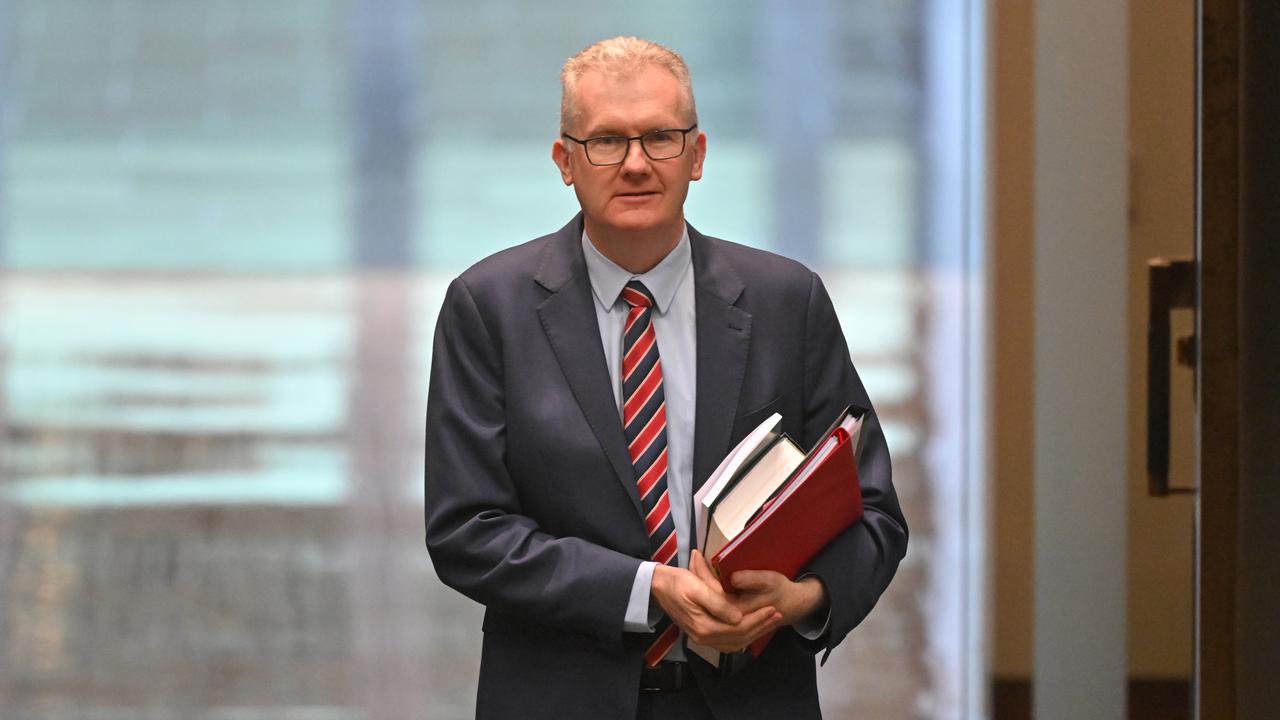
Home Affairs Minister Tony Burke said there is no place for hate, and nothing could be less Australian.
“We stand with modern Australia against these rallies,” he said.
Australia’s diversity was an integral and valued part of its national identity, Multicultural Affairs Minister Anne Aly said.
“This brand of far-right activism grounded in racism and ethnocentrism has no place in modern Australia,” she said.
Opposition multicultural affairs spokesman Paul Scarr said the material circulated for the planned rallies had caused great hurt.
“No part of the Australian community should be singled out. To do so is divisive and wrong,” he said.
Queensland MP Bob Katter on Thursday threatened to punch a journalist at a press conference where he had spruiked his attendance at the Brisbane rally.
Mr Katter unleashed on the Nine reporter after he was questioned about his Lebanese heritage.
“Oh mate, don’t say that because that irritates me, and I punch blokes in the mouth for saying that,” he said while pointing at the journalist.
The ACT Human Rights Commission urged people to report incidents if they witnessed others being vilified for their race, religion or colour.
The commission warned vilification remains illegal.
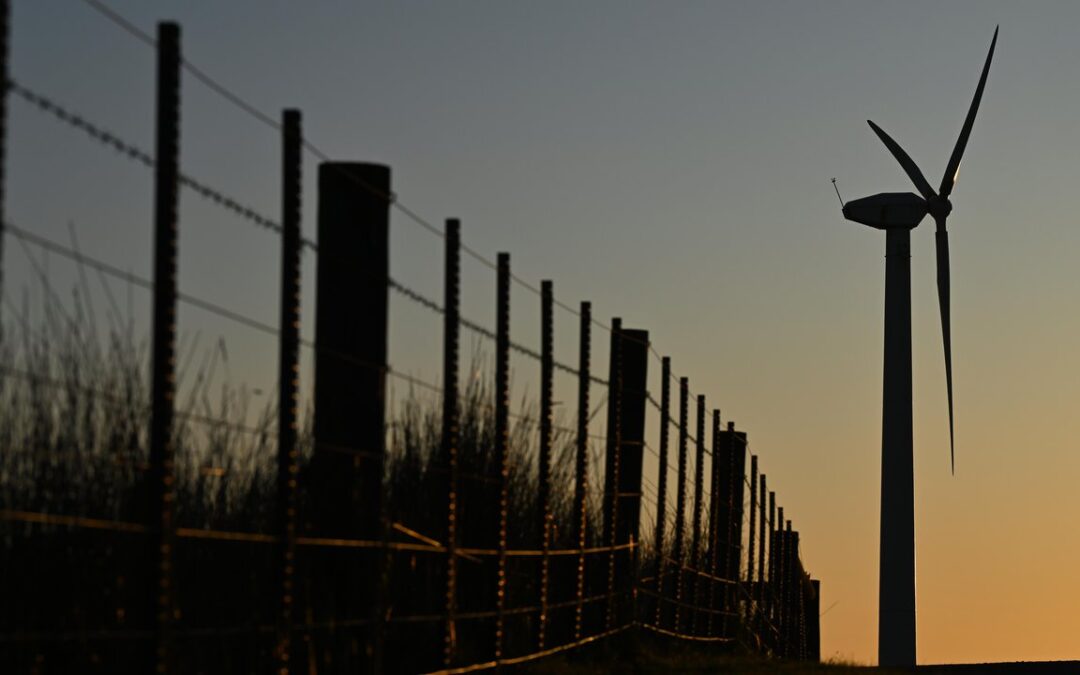
Wind farm fans ‘death row’ fears for endangered species
The approval of a controversial wind farm project has lit a fuse for enraged environmentalists, who say the federal government has signed a death warrant for its surrounding ecosystem.
After being trapped in political purgatory for eight years, ACEN Australia’s 100-turbine proposal for Robbins Island in Tasmania has been given the green light.
The long-stalled project was approved after the federal environment minister said Australia had to be “realistic” about the need for renewable energy.
It has long been the subject of opposition from environmentalists, who have raised concerns about the impact on local wildlife.
Environment Minister Murray Watt insisted a balance had been struck between strong protections and the need for more renewable projects.
“It is important that proponents do the right thing and consult their communities, but we have to be realistic about the needs of our country for that renewable energy,” he told reporters in Canberra on Friday.
The wind farm is expected to generate enough energy to power 422,000 homes and reduce greenhouse gas emissions by 3.4 million tonnes per year – the equivalent to taking more than a million cars off the road.
Environmental advocates raised concerns the project could further imperil the critically endangered migratory orange-bellied parrots.
There are also fears building a bridge to the island as part of the proposal would expose healthy Tasmanian devils to a deadly facial tumour disease that has wiped out two-thirds of the species population in the past three decades.
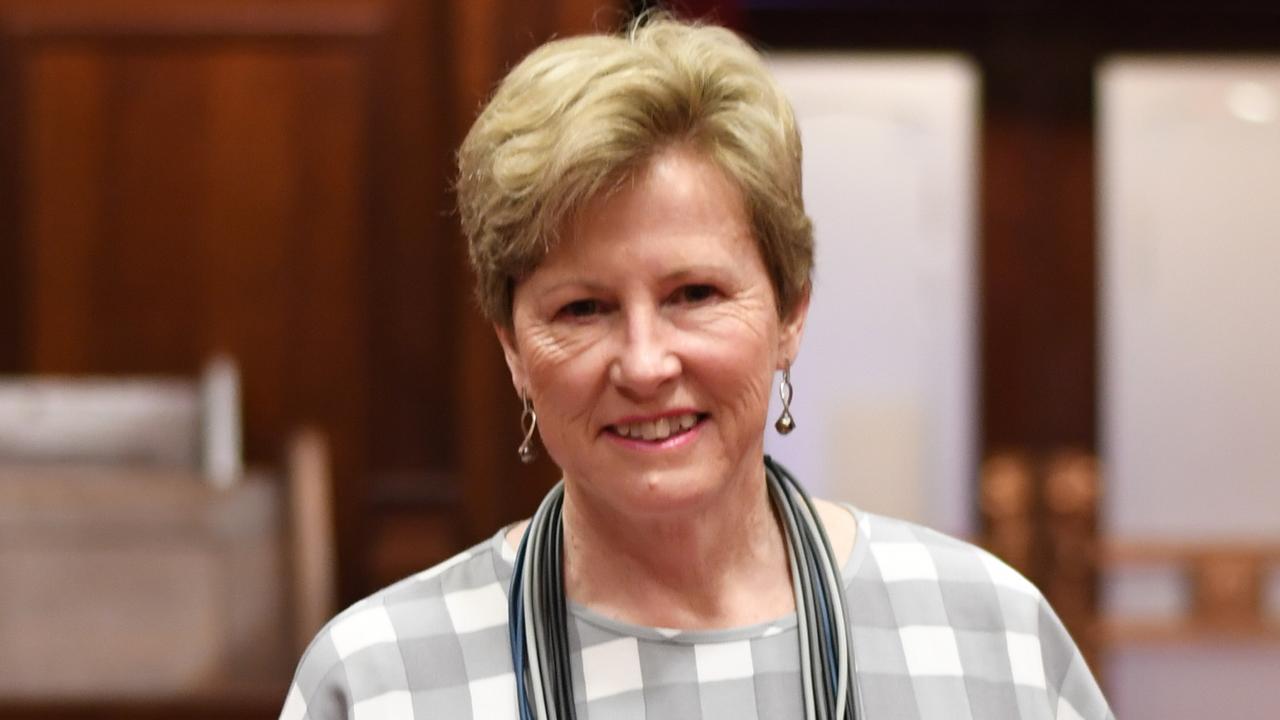
“Prime Minister Albanese has sent his anti-environment emissary, Minister Murray Watt, to sign the death warrant for the magnificent ecosystem of Robbins Island,” Bob Brown Foundation patron and former Greens politician Christine Milne said.
“Murray Watt’s assurances that he will set strict conditions are a joke.”
The Labor government has imposed conditions to mitigate some of these worries, including funding for an orange-bellied parrot conservation program and barriers to prevent mainland Tasmanian devils from transmitting the tumour disease.
No wind turbines or other infrastructure can be built within 1km of a Tasmanian wedge-tailed eagle nest.
Ms Milne rejected the conditions and argued removing green tape to speed up the project would put endangered birds including the Orange-bellied Parrot on “death row”.
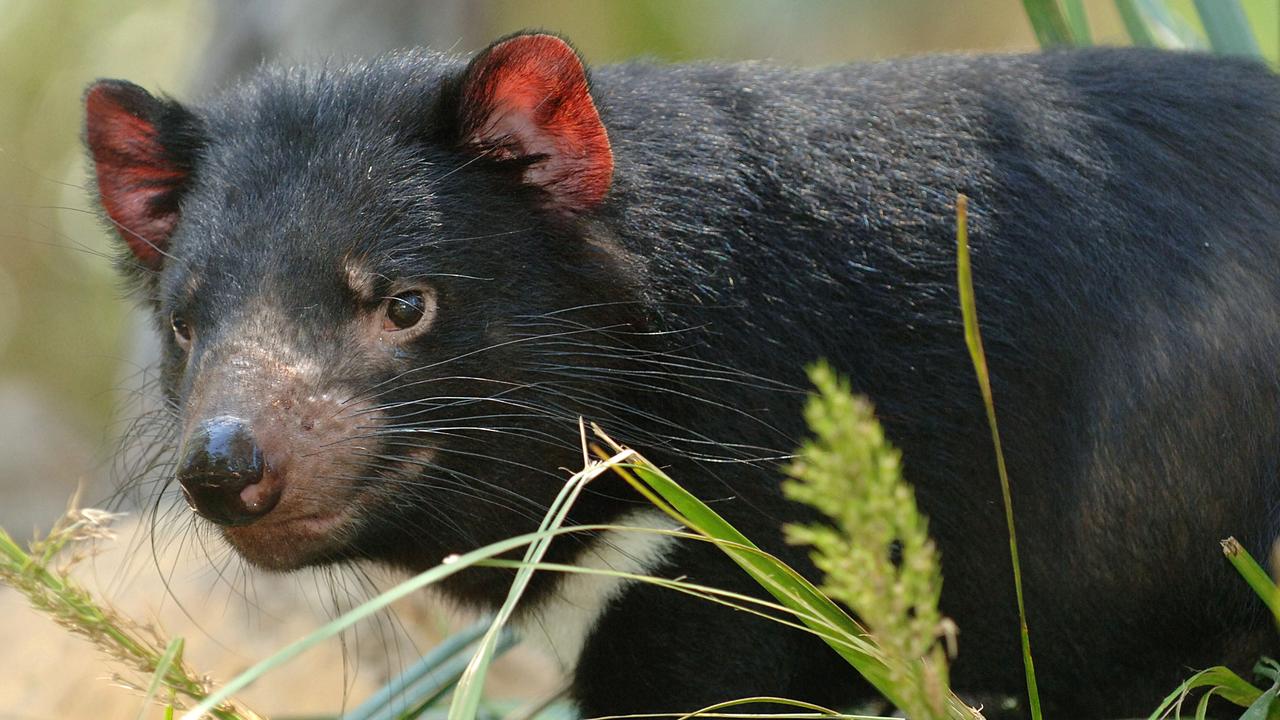
Tasmanian Greens party members condemned the project’s approval.
“Of course we need more renewable energy projects, but this is the wrong project in the wrong place,” Senator Nick McKim said.
“Habitats, landscapes and seascapes should be protected under international conventions, not exploited for profit by a multinational corporation.”
Construction on the $3 billion development is expected to begin in 2031 and will support 350 direct jobs alongside 50 ongoing operational jobs.
ACEN Australia said the approval was a step in the right direction.
“The decision shows that large, complex projects can be delivered responsibly, balancing overall impacts and conserving biodiversity, with the need for clean energy to address climate change,” managing director David Pollington said.
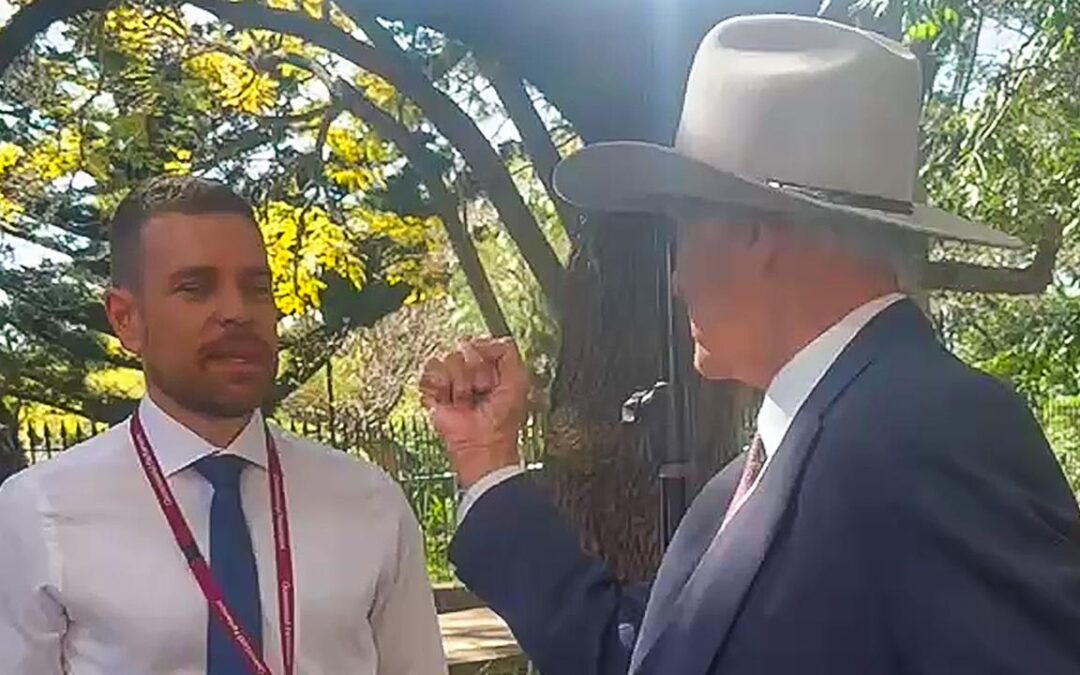
‘Deeply personal’: Katter triggered by family question
Bob Katter’s son says a “deeply personal” issue triggered his father’s explosive reaction to a journalist as the MP defies calls to apologise.
The maverick politician sparked outrage after threatening to punch a TV reporter when asked about his Lebanese heritage at a press conference.
Prime Minister Anthony Albanese on Friday weighed in, telling the 80-year-old federal MP to take “a look at himself”.
Queensland state MP Robbie Katter defended his father, saying the question about their family history had touched a nerve.
However he was reluctant to go into detail about the matter that had apparently triggered his father when he spoke to AAP on Friday.
“Knowing him and some of his personal background, I’m quite confident there are some very deep personal issues that the journalist in question has tapped into,” he said.
“He’s touched on a very deeply personal touch point with him, of which we tried to warn him to divert that line and he chose not to.”
Mr Katter was flanked by his son and two other Katter’s Australian Party colleagues at the press conference in Brisbane on Thursday when he became irate.
His grandfather Carl Robert Katter immigrated from Lebanon to Australia in 1898.
But Mr Katter – known as parliament’s Father of the House – lost his cool when asked about his Lebanese heritage by Nine Network journalist Josh Bavas.
“Don’t say that, because that irritates me, and I punch blokes in the mouth for saying that,” he yelled, cutting off the reporter’s question.
“I am Australian. My family have been here since the dawn of time.”
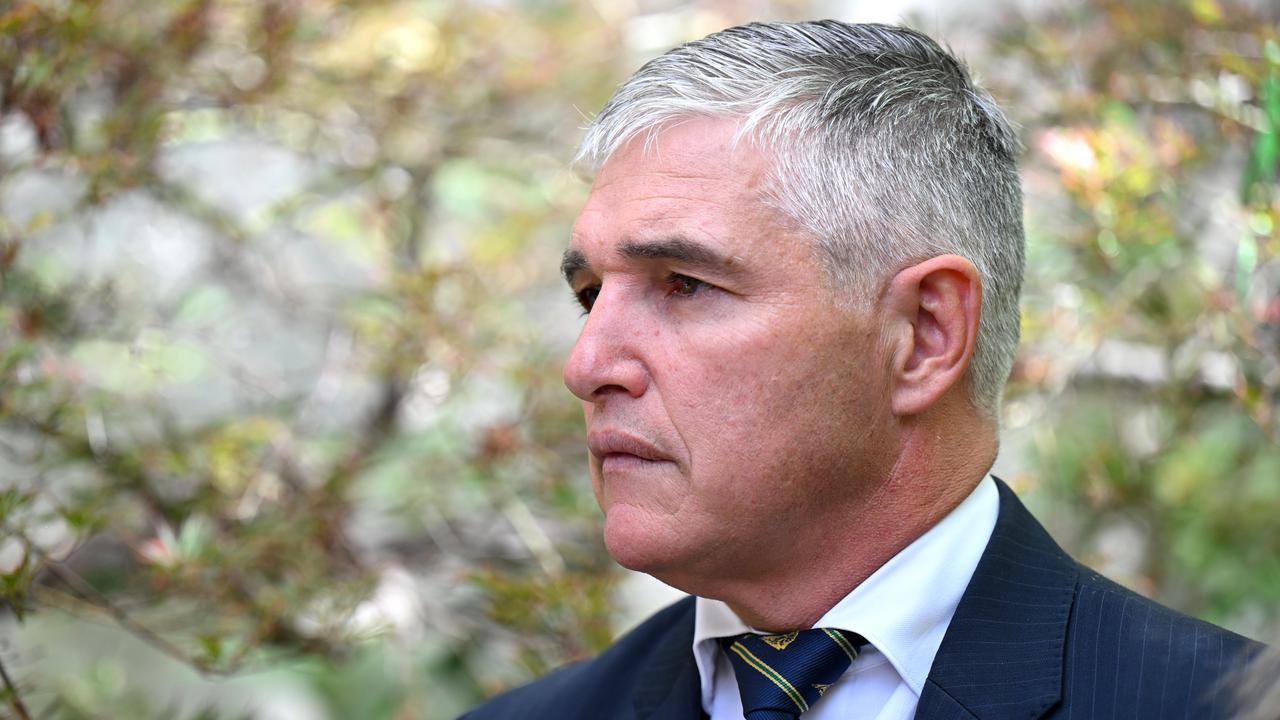
He then approached Bavas with a raised fist when the reporter tried to ask a follow-up question.
“You’re a racist,” the independent MP for the Queensland seat of Kennedy said, holding his fist close to the reporter’s face.
Bavas led calls for Mr Katter to apologise for his “unacceptable” behaviour, with federal MPs weighing in on Friday.
Robbie Katter said he had not been in touch with his father since the press conference and was unsure whether an apology was forthcoming.
“I certainly don’t feel like I owe him any apology, but I do wish him well,” the third-generation politician said of Bavas.
“I think he’s a good journalist and I don’t think he necessarily had any malice intended.”
Mr Albanese said Mr Katter – federal parliament’s longest-serving MP after first winning his seat in 1993 – had to consider his actions.
“Look, Bob Katter I like. But Bob Katter needs to have a look at that footage,” he told Nine Network’s Today Show.
“Have a look at himself, frankly, and recognise that that’s just not what we expect of any Australian, let alone someone who’s in public office.”
Nationals leader David Littleproud said Mr Katter’s behaviour was not becoming of a federal MP.
“It doesn’t matter who you are or how iconic you think you are,” he told ABC Radio National on Friday.
“Bob wears the big hat and it all seems all great … but I don’t think that sort of behaviour is appropriate for a federal member of parliament.”
Asked if Mr Katter should apologise, Mr Littleproud said: “I’d like him to but I doubt he will.”
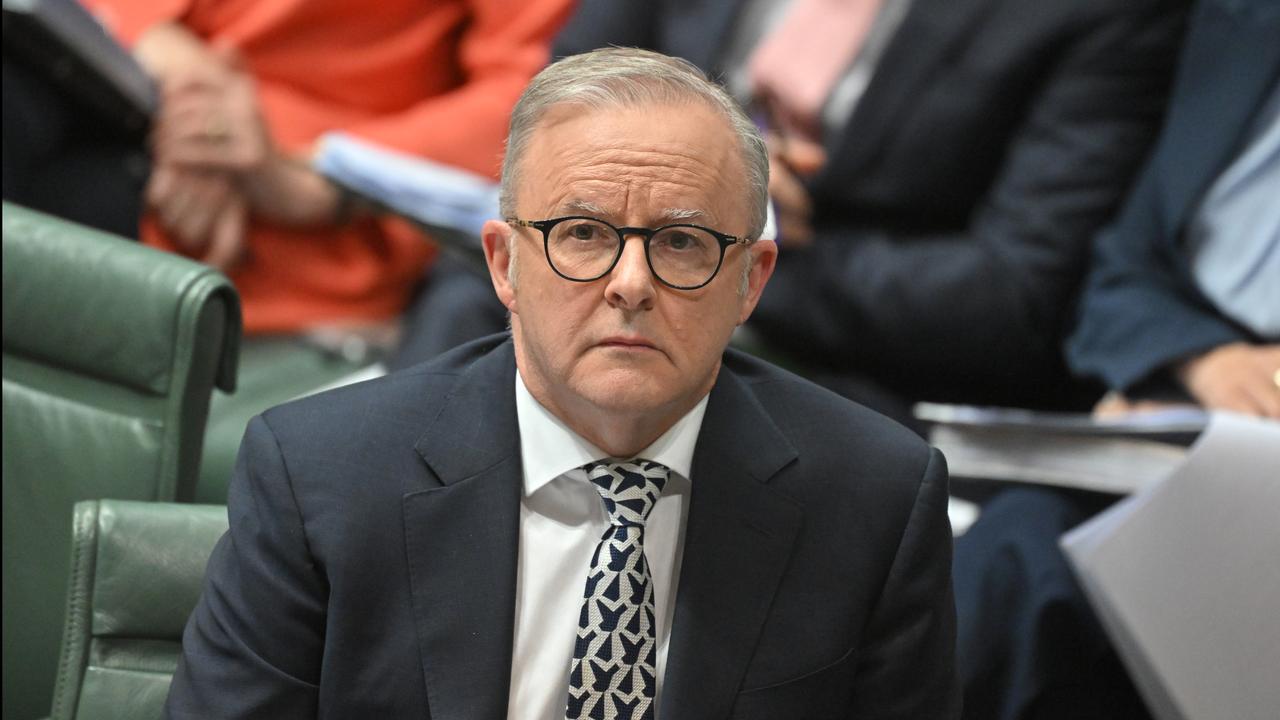
Federal Health Minister Mark Butler said the Queensland MP was known for his quirky behaviour but crossed the line at the press conference.
“That is completely unacceptable,” he told Seven Network’s Sunrise program.
The Nine Network has backed Bavas, demanding the MP apologise for his display.
“His baseless and offensive accusation of racism is an irresponsible attempt to shut down a legitimate line of questioning,” Nine Network’s Fiona Dear said in a statement.
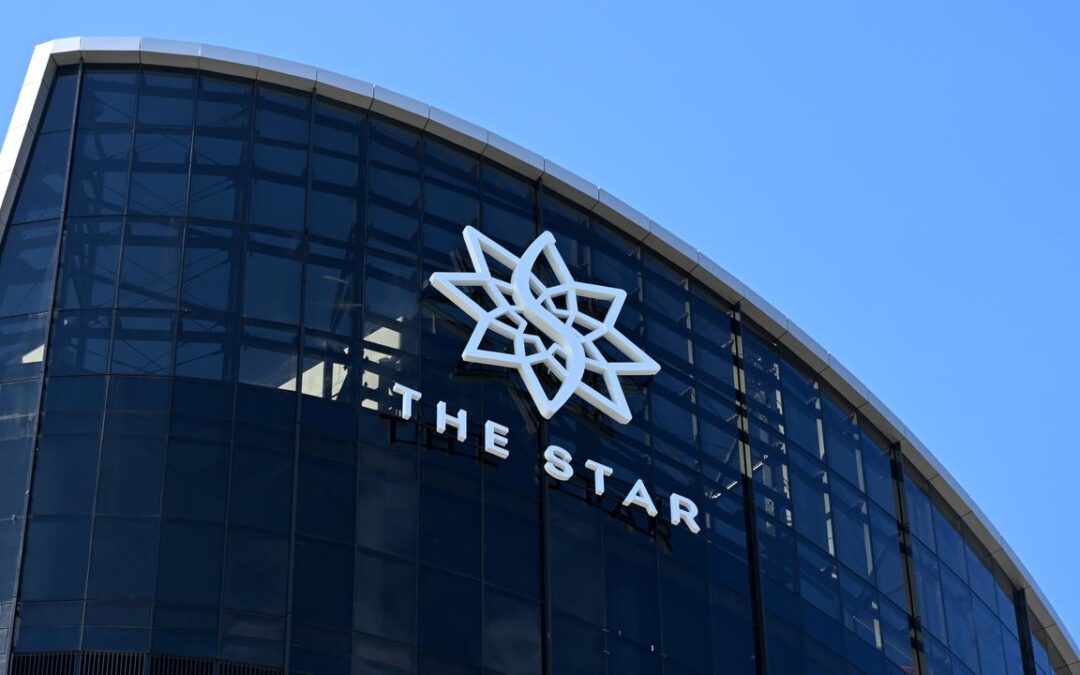
Crunch time for Star despite narrowing full-year loss
Star Entertainment Group is teetering on the brink despite narrowing full-year losses by more than a billion dollars.
“There remains material uncertainly regarding the group’s ability to continue as a going concern,” the casino operator said on Friday after announcing a $471.5 million full-year loss, compared to a $1.7 billion loss the year before.
Star cited six items critical to its financial outlook including a looming money-laundering penalty from financial watchdog AUSTRAC, which has proposed a $400 million fine.
Also among them is its ability to restore its casino licences and completing a $300 million investment from Bally’s and pub baron Bruce Mathieson.
Star also owes $434.3 million to its senior lenders and needs them to continue to waive financial covenants, with September 30 the next deadline for a waiver.
The company this week said it was in discussions with its lenders, but they had so far been unable to come to terms.
“The SFA lender group has proposed various terms in exchange for providing the requested covenant waivers which, in aggregate, are unacceptable to The Star,” it said.
If Star cannot reach agreement it would need to find another lender willing to refinance the debt, or lose control of its business.
September 30 is also around when Star will learn whether it will keep its NSW casino licence, which has been suspended since October 2022, although the Star Sydney has remained open during that time under the control of a regulator-appointed manager.
In March, the NSW Independent Casino Commission extended the manager’s term to September 30, at which time it said it would reassess the Star Sydney’s suitability for a casino licence.
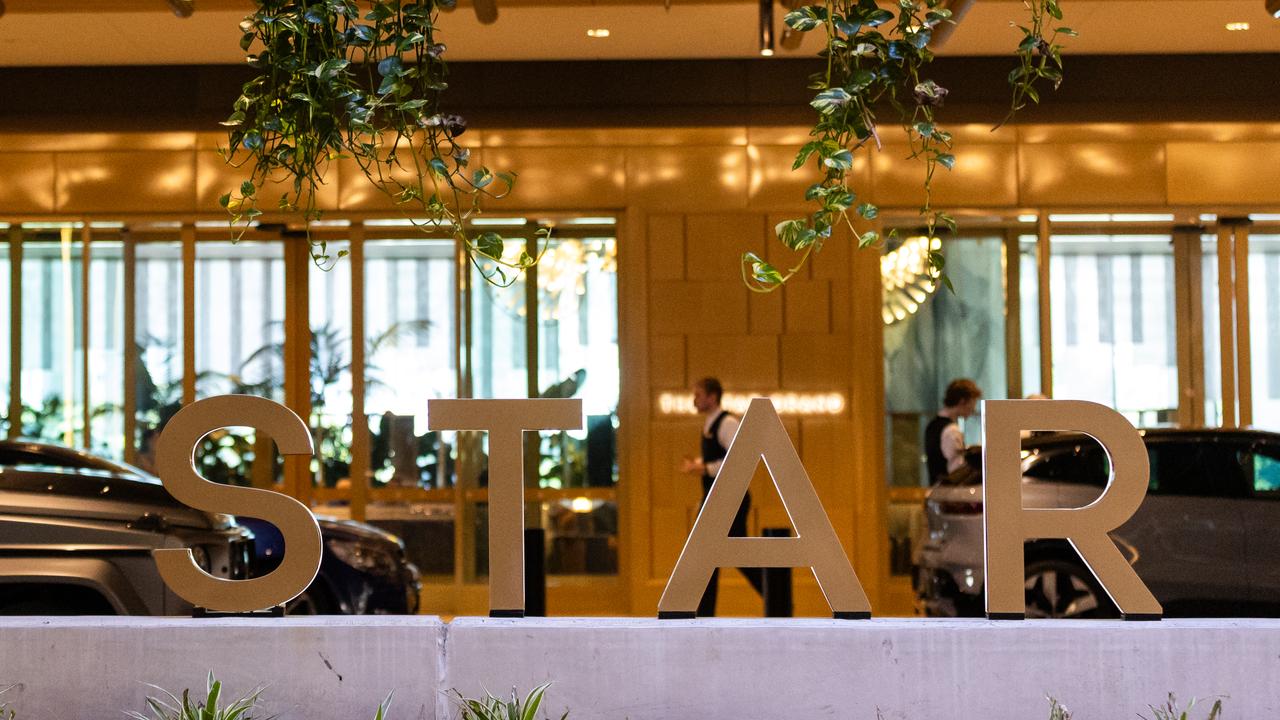
“Our announcement today highlights a number of key interdependencies that are critical to the group’s future,” CEO and managing director Steve McCann said.
“The group continues to require significant support from a range of its stakeholders including governments, regulators, lenders and investors.
“Without that support it will be difficult to navigate the various challenges facing the group and to create a sustainable future for the business.”
Star said it had $189 million in available cash as of Monday, $45 million less than it had as of June 30, partly because it paid $16 million in back-taxes during that time.
The company said it brought in $92.1 million in revenue and incurred a $7.4 million operating loss in July, slightly ahead of its June quarter average.
Star is due to receive another $67 million in funds from Bally’s and Mr Mathieson by October 9, the last tranche of their $300 million investment.
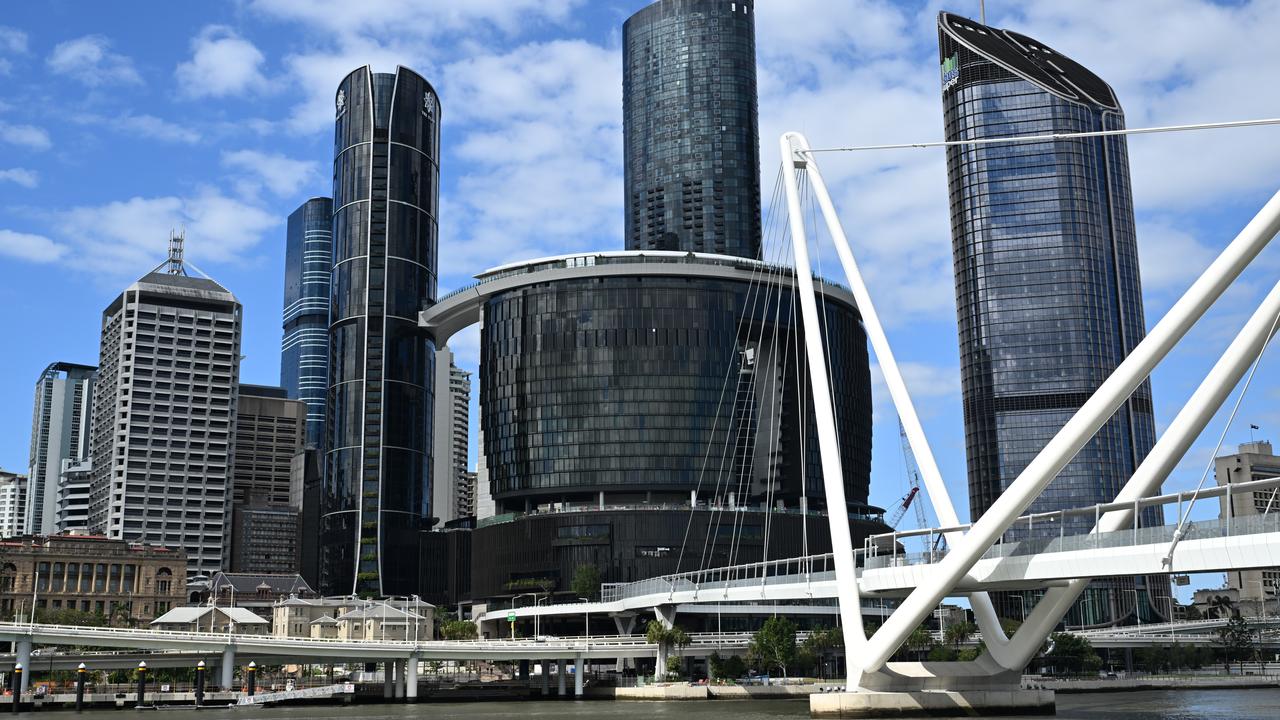
Earlier in August, Star executed a binding agreement to sell its half-stake in the debt-ridden entertainment hub Queen’s Wharf Brisbane to its Hong Kong partners, in return for their stake in the Star Gold Coast.
Group revenue was down 29 per cent to $1.2 billion in 2024/25, which Star said reflected challenging trading conditions.
That is partly blamed on a loss of business through mandatory carded play and cash limits imposed by regulators at The Star Sydney.
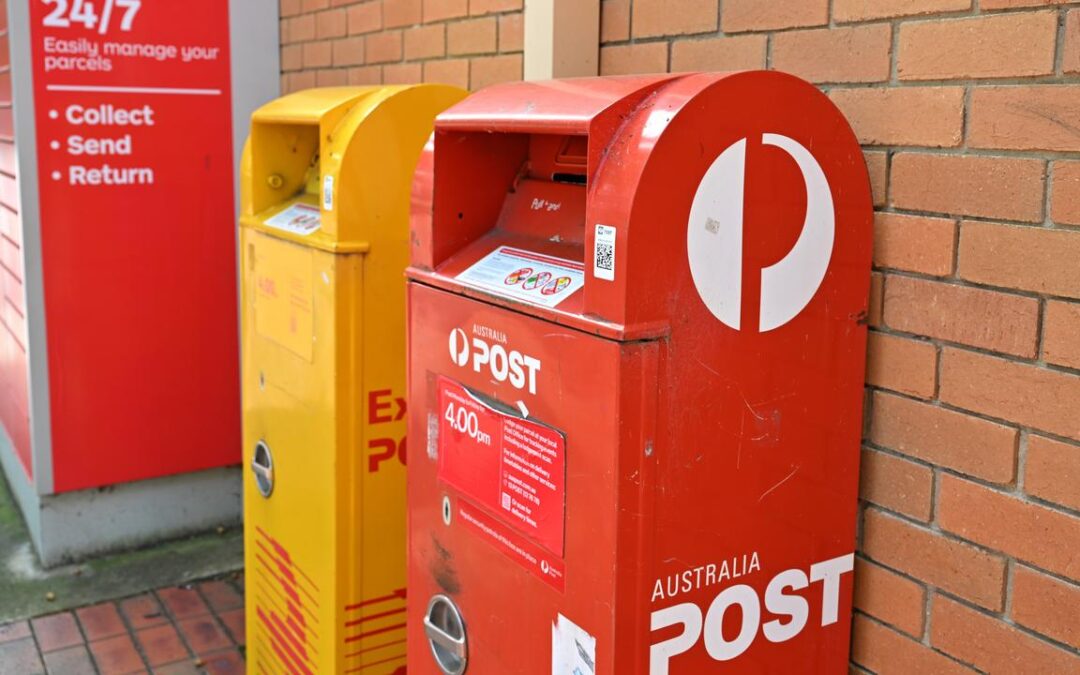
Dead letter day: post boss says the end is nearing
Australians are abandoning snail mail in a trend that has cost Australia Post $230 million and left posting letters on life support.
Australia Post chief executive Paul Graham delivered the warning on Friday as he announced the company’s first profit in three years, with a record number of parcels boosting its pre-tax return to $18.8 million.
Letters had collapsed into “permanent decline”, plunging by a further five per cent in volume during the financial year, with federal, state and local election material preventing an even worse result.
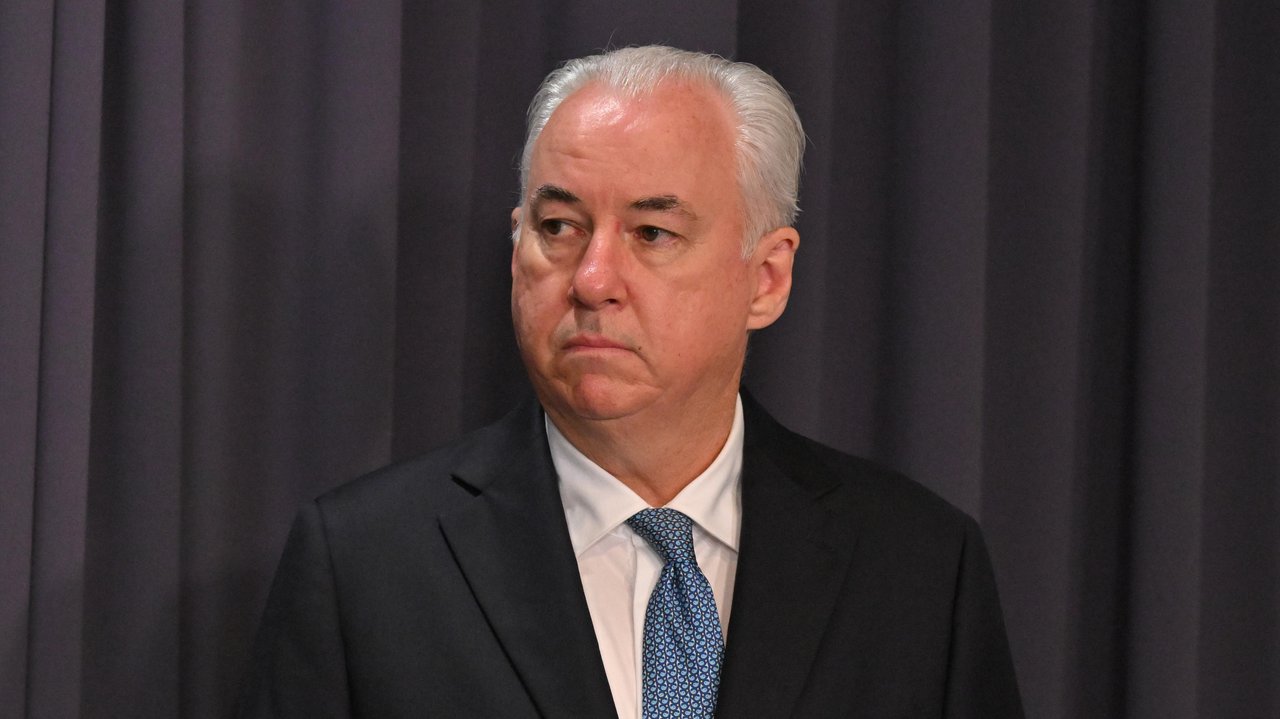
Australians were posting letters at rates not seen since the 1930s when the nation’s population was six million, Mr Graham said, and Australia Post would eventually stop delivering them.
“We definitely will and I can guarantee that we will deliver that last letter, but if you look at the way digitisation is going, if you look at the way that people are now engaging in information, it’ll all be in the palm of our hand,” he told AAP.
“I think it may be faster than some other countries because we’re pretty good adaptors at digital alternatives here.”
A decrease in letter volumes to 1.66 billion drove a $230.4 million loss for that aspect of the business, despite a 30-cent stamp increase and letter deliveries every second business day.
Australia Post’s pre-tax profit is its first since 2022 and a significant improvement from last year’s $88.5 million loss.
Record Christmas parcel deliveries of 102.8 million contributed to the result, with revenue from parcels and services rising by 2.9 per cent to $7.64 billion.
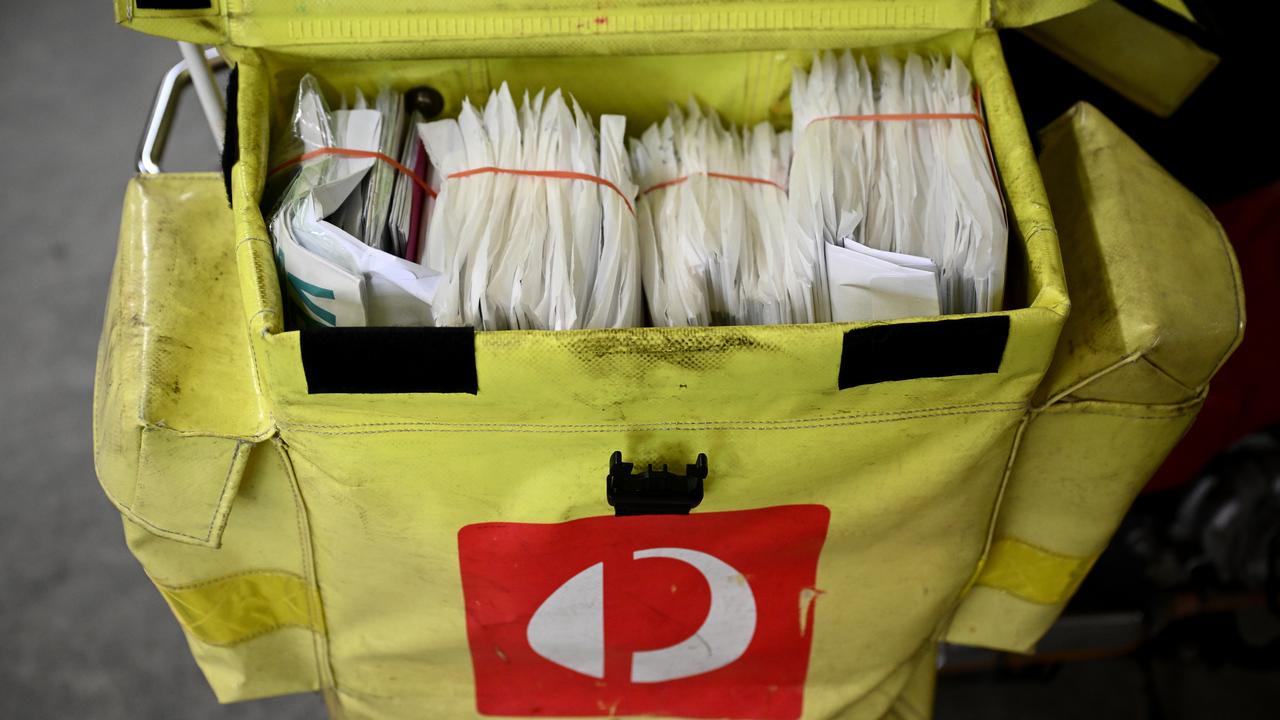
Domestically, parcel volumes grew by 2.6 per cent despite growing competition from global retail firms and small logistics start-ups.
The results also came just days after the government-owned network surprised customers by suspending parcel deliveries to the United States following an expansion of US tariffs.
The company also flagged further postage fee rises would be needed to address the growing cost of the service.
The company invested $371.9 million in fleet, technology and facilities during the year, including a parcel-processing facility at Melbourne Airport, delivery centre at Blacktown in NSW, and parcel and letters facility at Narrandera in regional NSW.
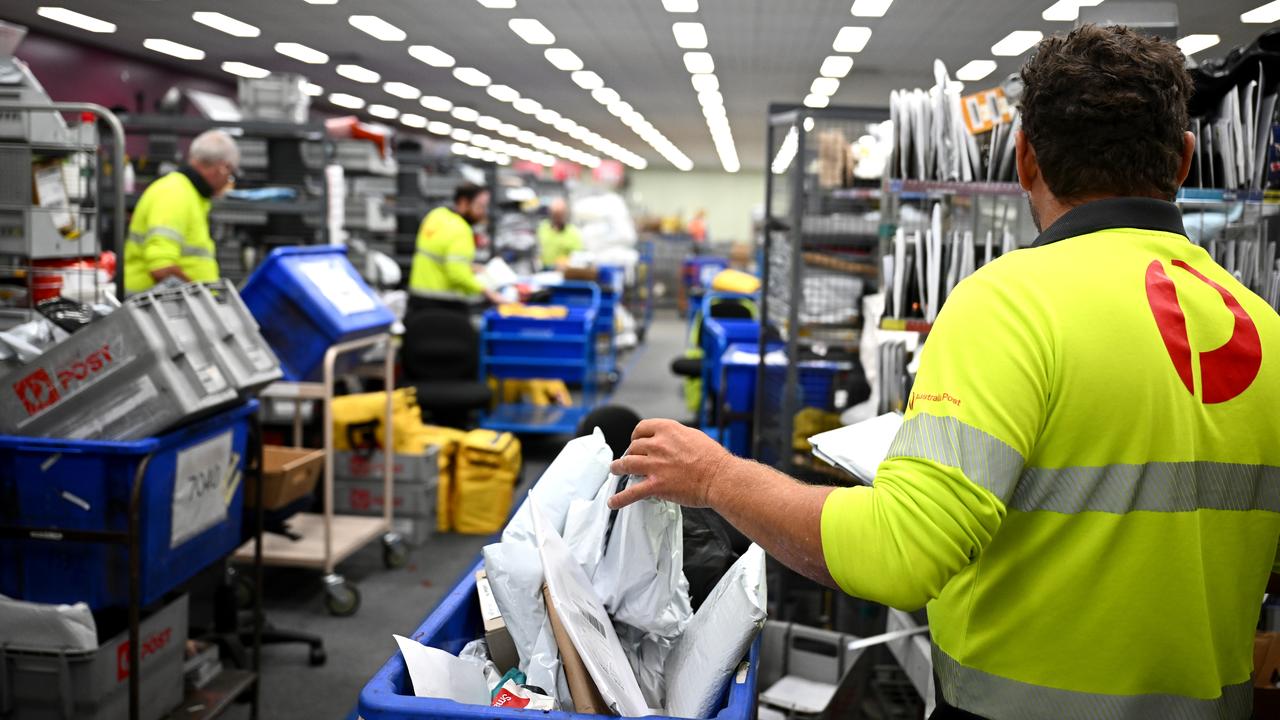
Australia Post could not afford to be complacent about its operations, Mr Graham said, amid growing competition for parcel deliveries.
“Competition in the parcels market remains fierce, with global online marketplace retailers ramping up their presence in Australia,” he said.
“We are facing sector-wide headwinds like many other global postal operators.”
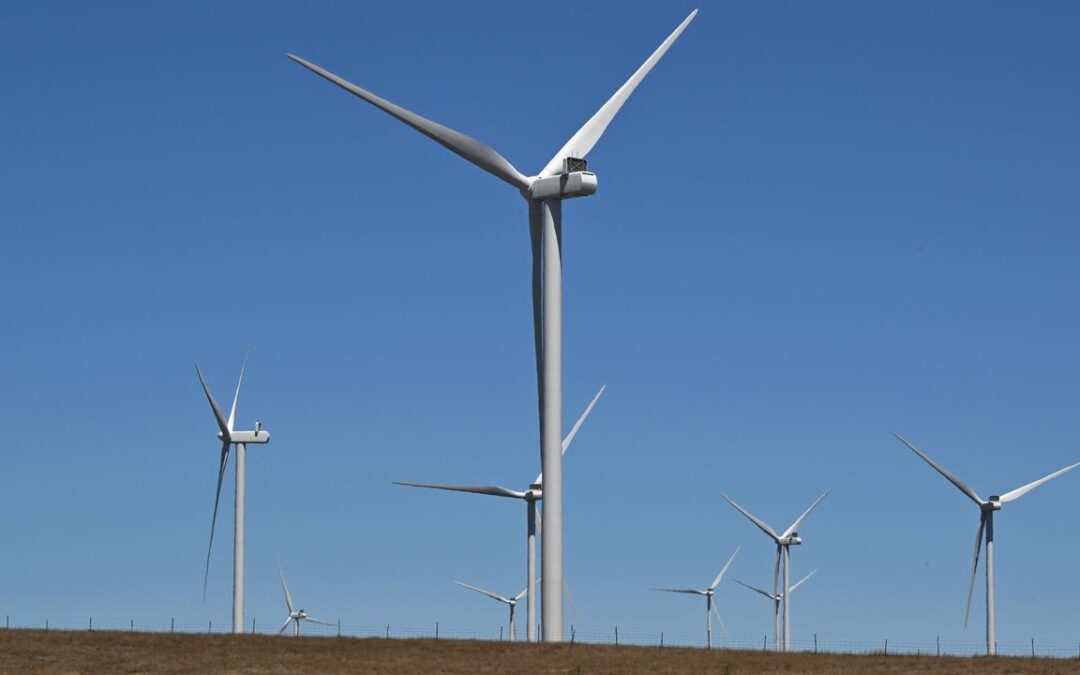
‘Be realistic’: contentious wind farm gets green light
A long-standing and controversial wind farm project has been approved after the federal environment minister said Australia had to be “realistic” about the need for renewable energy.
After being trapped in political purgatory for eight years, ACEN Australia’s 100-turbine proposal for Robbins Island in Tasmania has finally been given the green light.
It has long been the subject of opposition from environmentalists, who have raised concerns about the impact on local wildlife.
But Environment Minister Murray Watt insisted he had struck the balance between the need for more renewable projects and strong environmental protections.
“It is important that proponents do the right thing and consult their communities, but we have to be realistic about the needs of our country for that renewable energy,” he told reporters in Canberra on Friday.
The wind farm is expected to generate enough energy to power 422,000 homes and reduce greenhouse gas emissions by 3.4 million tonnes per year – the equivalent to taking more than a million cars off the road, according to the minister.
Environment advocates continue to raise concerns the project could further imperil the critically endangered migratory orange-bellied parrots.
There are also worries building a bridge to the island as part of the proposal would expose healthy Tasmanian devils to a deadly facial tumour disease that has wiped out two-thirds of the species population over the last three decades.
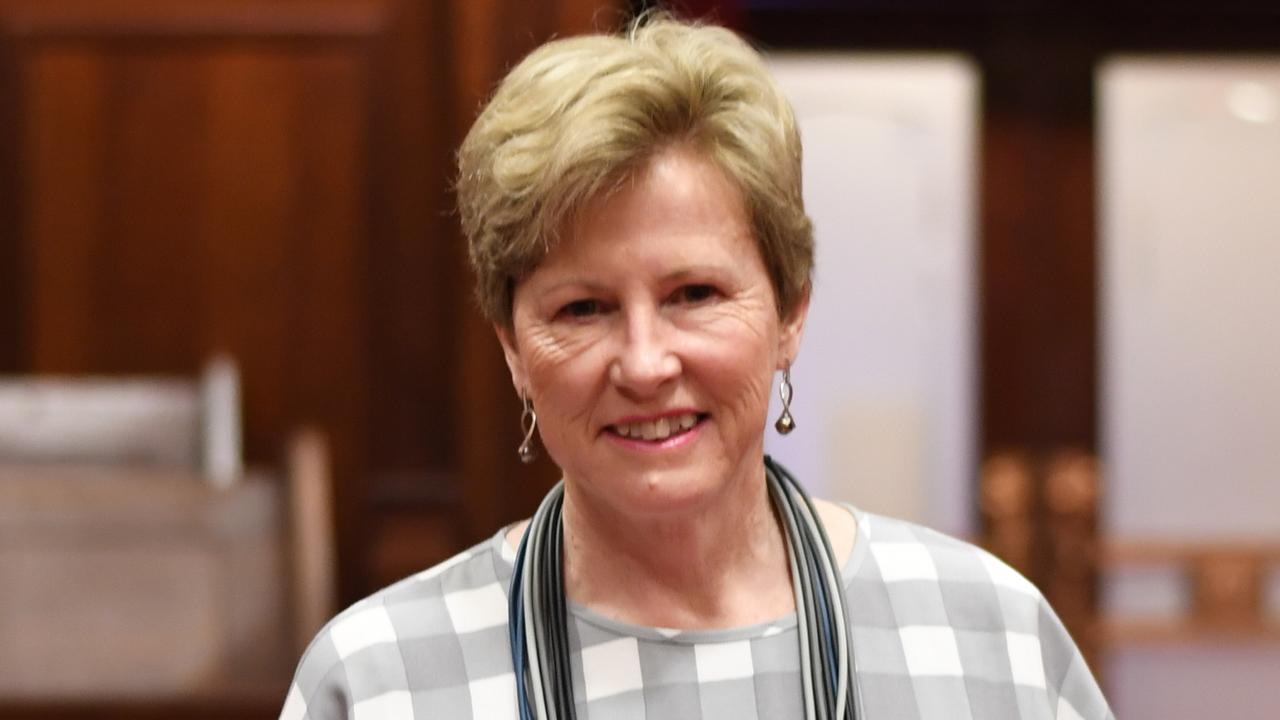
“The suggestion that we wipe out biodiversity for the sake of renewable energy that goes to the mainland … is ridiculous,” Bob Brown foundation patron and former Greens politician Christine Milne said.
The Labor government has imposed conditions to mitigate some of these worries, including funding for an orange-bellied parrot conservation program and barriers to prevent mainland Tasmanian devils from transmitting the tumour disease.
No wind turbines or other infrastructure can be built within one kilometre of a Tasmanian wedge-tailed eagle nest.
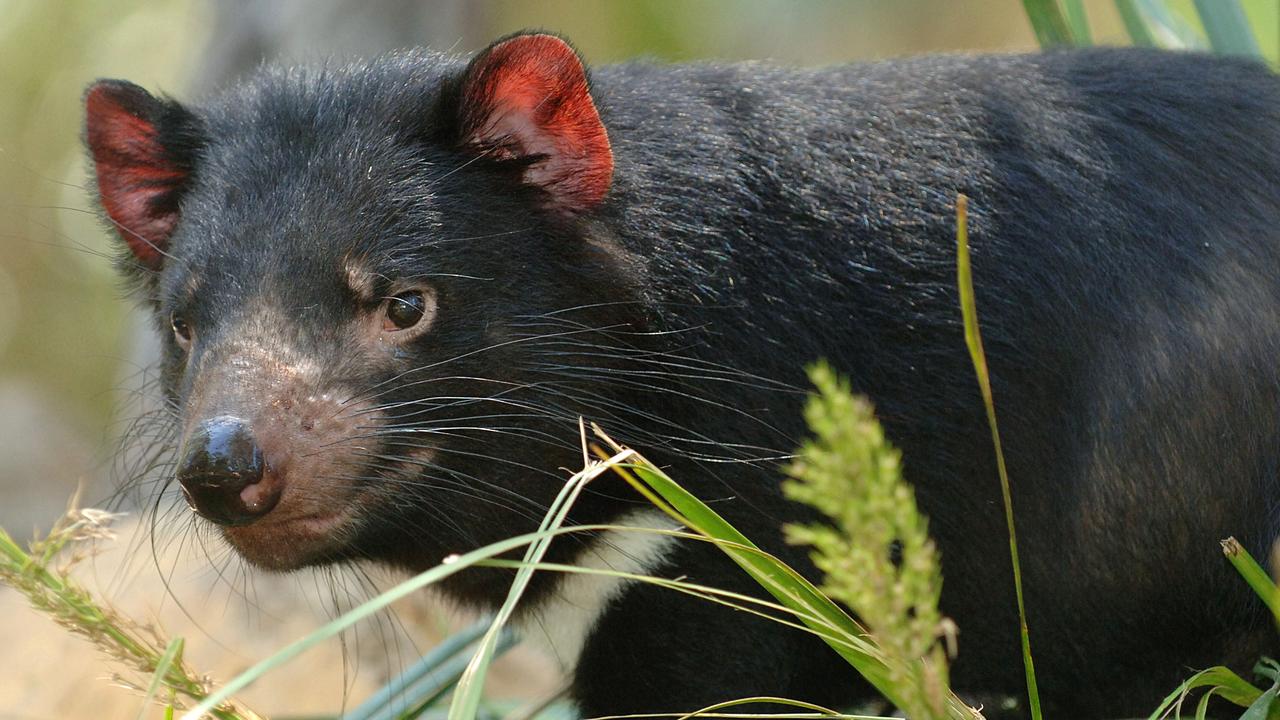
Construction on the $3 billion development is expected to begin in 2031 and will support 350 direct jobs alongside another 50 ongoing operational jobs.
ACEN Australia said the approval was a step in the right direction.
“The decision shows that large, complex projects can be delivered responsibly, balancing overall impacts and conserving biodiversity, with the need for clean energy to address climate change,” ACEN Australia managing director David Pollington said.

Embattled A-Leagues expansion club wound up by courts
Embattled A-Leagues club Western United is officially defunct after the Federal Court ordered its management group be wound up in insolvency.
Lawyers for the club had sought an adjournment to proceedings, claiming they had found a fresh $15 million investment to pay off their debts.
But on Friday afternoon, the adjournment, and with it a late attempt to save a club which had been in financial turmoil for months, was dismissed.
Judicial Registrar Robyn Curnow issued orders for Western United Football Club, WMG Holdings and three other companies owned by director Jason Sourasis to be wound up in insolvency.

Facing a tax bill amid concerns over unpaid wages and superannuation – and while under a FIFA registration ban – Western were stripped of their A-League licence by Football Australia (FA) earlier this month.
FA’s move followed continued delays to a takeover deal with American-based investors KAM, run by property tycoons Maciek and Mikhail Kaminski, which ultimately fell through.
KAM ultimately withdrew their bid for Western on Wednesday following FA’s decision to revoke the Tarneit-based club’s licence, in a hammer blow to their hopes of survival.
On Thursday, Western’s lawyer Bridget Slocum said Western had secured promises of a fresh cash injection from JC Capital which could be paid in “three to four weeks”.
Slocum said the investment was contingent on the club being reinstated to the A-League and the club be allowed to pay off its creditors and the ATO over the next “six to 12 months”.
But those hopes were swiftly dismissed on Friday afternoon.
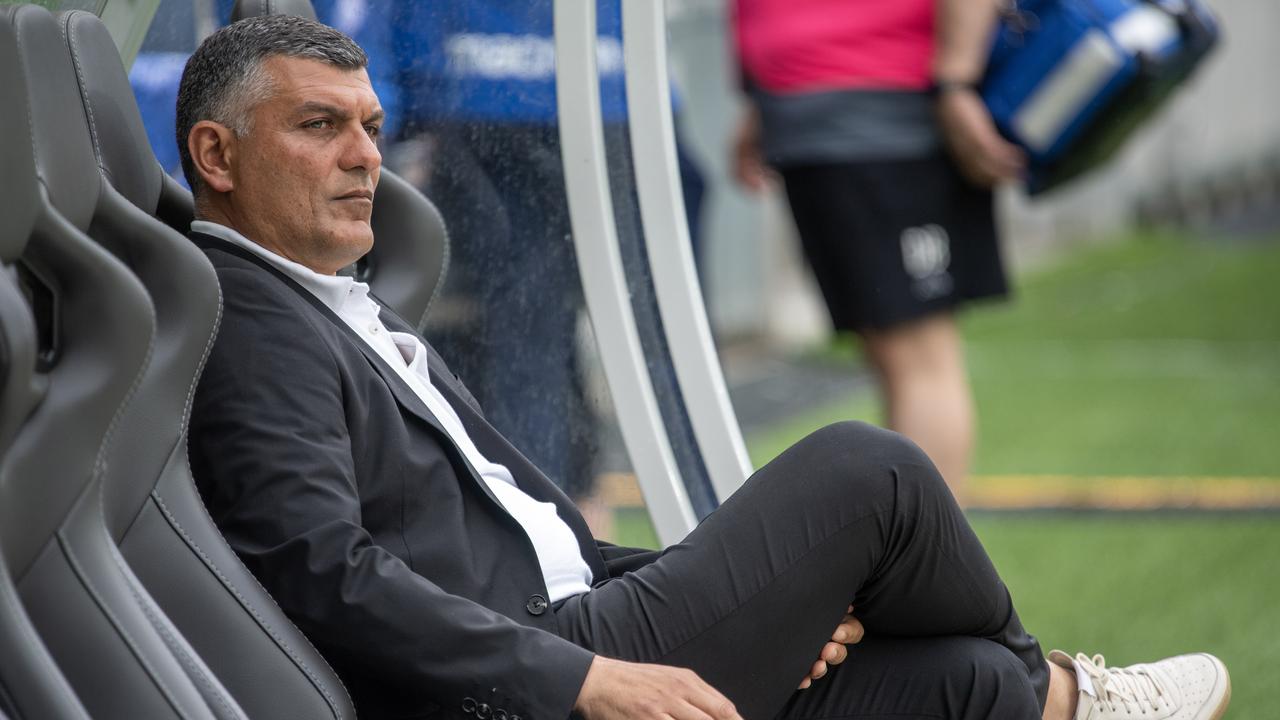
United was announced as an expansion club in 2018 and joined the A-League Men (ALM), ahead of the 2019-20 season.
Under John Aloisi, they won the ALM championship in 2021-22 while they joined A-League Women in 2022-23.
AAP has contacted the Australian Professional Leagues and Football Australia for comment.
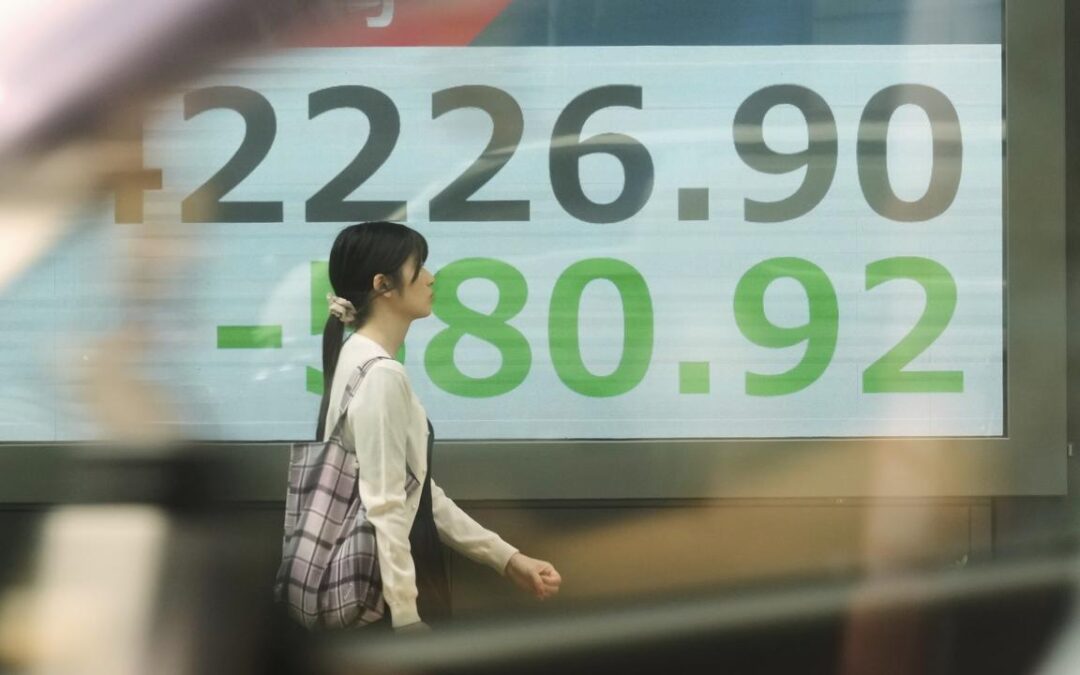
Asia upbeat as markets await US inflation data
Asian stocks edged higher on Friday, riding a tech-driven rally on Wall Street, with investor focus now turning to a key US inflation reading due later in the day for further clues on the Federal Reserve’s rate outlook.
The results from artificial intelligence heavyweight Nvidia’s this week, which fell short of investors’ lofty expectations, still confirmed that AI infrastructure spending remains strong, helping lift the S&P 500 and Dow Jones Industrial Average to record high closes overnight.
Markets in Asia latched on to the positive momentum on Friday as MSCI’s broadest index of Asia-Pacific shares outside Japan rose 0.4 per cent, though European and US stock futures slipped.
EUROSTOXX 50 futures fell 0.2 per cent while FTSE futures eased 0.08 per cent. S&P 500 futures dipped 0.08 per cent and Nasdaq futures lost 0.15 per cent.
“Despite the uncertainty around China for Nvidia, the headline revenue growth numbers don’t really suggest that the overall AI story is faltering much. Expectations are just already very high,” said Thomas Mathews, head of markets for Asia-Pacific at Capital Economics.
“The big picture though is that earnings are still growing very rapidly for US tech companies, and unless that changes materially, the stock market there will probably keep doing ok.”
In China, the tech-focused STAR 50 Index slid 2.5 per cent after a jump of more than 7.0 per cent in the previous session.
Shares of Chinese chip firm Cambricon Technologies tumbled more than 5.0 per cent after the company on Thursday issued a risk alert to investors in a stock exchange filing, citing a sharp rise in its stock prices since late July.
“Certainly, when you see such a very, very large move, and then some warning coming from the company, you could think that there has been a little bit of overshooting,” said Frank Benzimra, head of Asia equity strategy at Societe Generale.
“But for me, that is a very normal way of the market functioning, because we all know that the market is going to undershoot on the downside and to overshoot on the upside.”
Still, the CSI300 blue-chip index was up 0.7 per cent and Hong Kong’s Hang Seng Index gained 0.5 per cent. Japan’s Nikkei slipped 0.4 per cent.
In the broader market, focus now turns to the release of the US PCE price index data – the Fed’s preferred measure of inflation – later on Friday.
“The market will be on the lookout for any signs of whether or not some of these tariff pass-throughs are starting to filter through into the PCE deflator,” said Khoon Goh, head of Asia research at ANZ.
“There are three important pieces of data ahead of the September FOMC. So there’s the PCE, then there’s the payrolls number next week, and then the CPI reading.”
Traders are currently pricing in an 86 per cent chance of a rate cut in September, up from 63 per cent a month earlier, according to the CME FedWatch tool.
Fed Governor Christopher Waller on Thursday said he wants to start cutting interest rates next month and “fully expects” more rates cuts to follow to bring the Fed’s policy rate closer to a neutral setting.
The heightened expectations of imminent Fed rate cuts left the dollar headed for a monthly fall of 2.0 per cent against a basket of currencies on Friday.
The euro was last down 0.2 per cent at $US1.1657 ($A1.7871), pressured in part by political and fiscal worries in France, while sterling eased 0.08 per cent to $US1.3497 ($A2.0692), though was set for a monthly gain of more than 2.0 per cent.
The dollar was also battling headwinds from worries about Fed independence as President Donald Trump steps up his campaign to exert more influence over monetary policy, including his latest attempt to fire Fed Governor Lisa Cook.
Cook filed a lawsuit on Thursday claiming Trump has no power to remove her from office.
Elsewhere, oil prices fell on Friday, with Brent crude futures down 0.68 per cent to $US68.15 ($A104.48) a barrel, while US crude slid 0.7 per cent to $US64.14 ($A98.33) per barrel.
Spot gold was down 0.17 per cent at $US3,410.69 ($A5,228.87) an ounce.
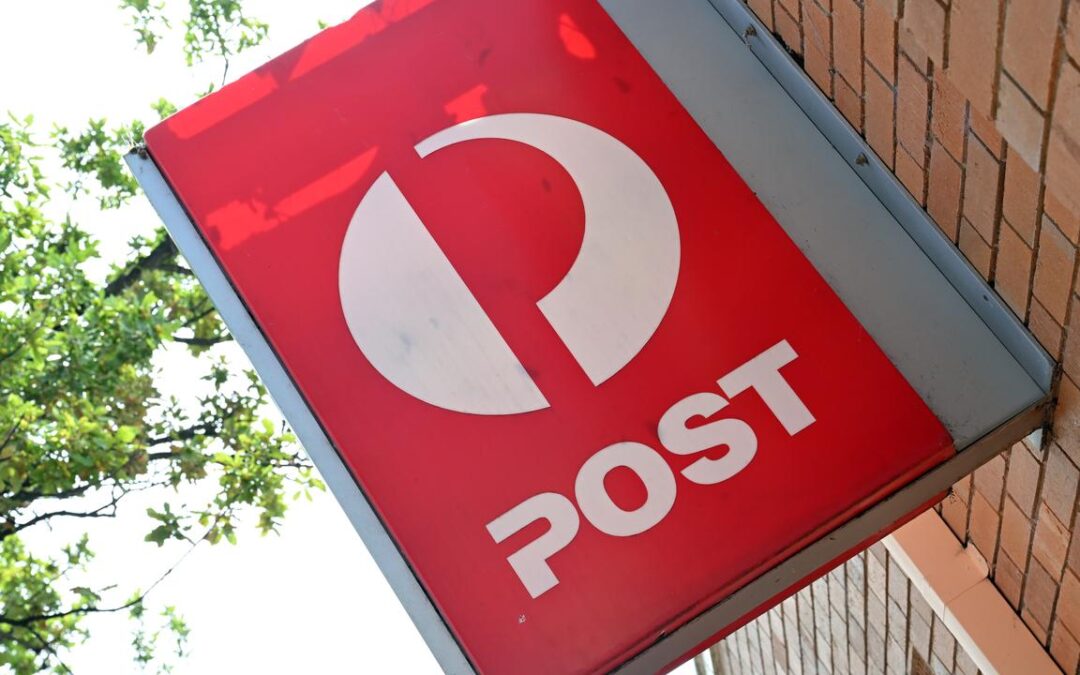
Parcels deliver Aust Post a profit while letters lag
Australia’s mail service has posted its first profit in three years as a record number of parcels delivered more revenue for the company, boosting its pre-tax return to $18.8 million.
But its letter business continued to drop during the past year, losing $230 million and was only saved from a greater fall by federal, state and local election material.
In its 2025 full year results on Friday, Australia Post said its letter business had fallen into “permanent decline” and postage prices would need to rise again.
The results also came just days after the government-owned network surprised customers by suspending parcel deliveries to the United States, following an expansion of US tariffs.
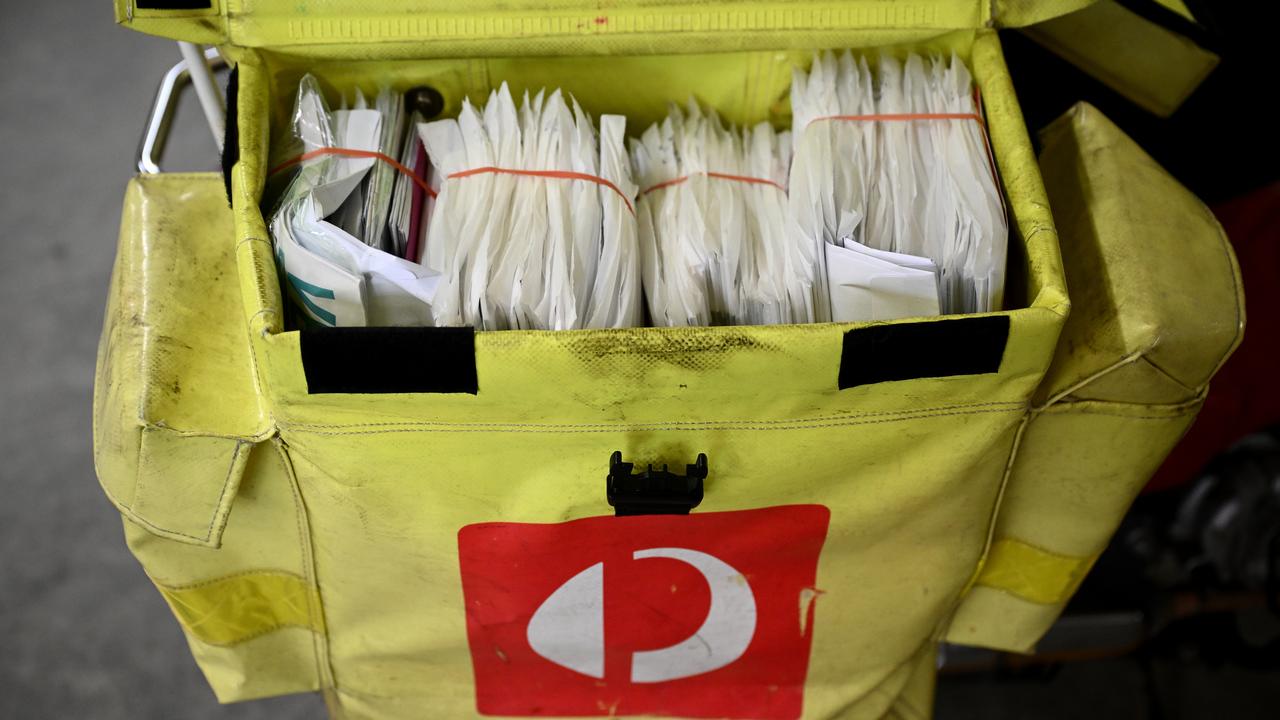
Australia Post’s pre-tax profit is its first since 2022 and a significant improvement from last year’s $88.5 million loss.
Record Christmas parcel deliveries of 102.8 million contributed to the result, with revenue from parcels and services rising by 2.9 per cent to $7.64 billion.
Domestically, parcel volumes grew by 2.6 per cent despite growing competition from global tech firms such as Amazon and small logistics start-ups.
Australians continued to send fewer letters during the year, with volumes down 5.4 per cent to 1.66 billion.
Despite a 30-cent increase to the basic postage rate in April 2024 and a move to deliver letters every second business day, Australia Post lost $230.4 million on the service.
Australia Post chief executive Paul Graham said letter volumes fell 11.7 per cent when state and federal election one-offs were excluded.
“Our letter service is in permanent decline and we don’t expect it will ever return to profit,” he said.
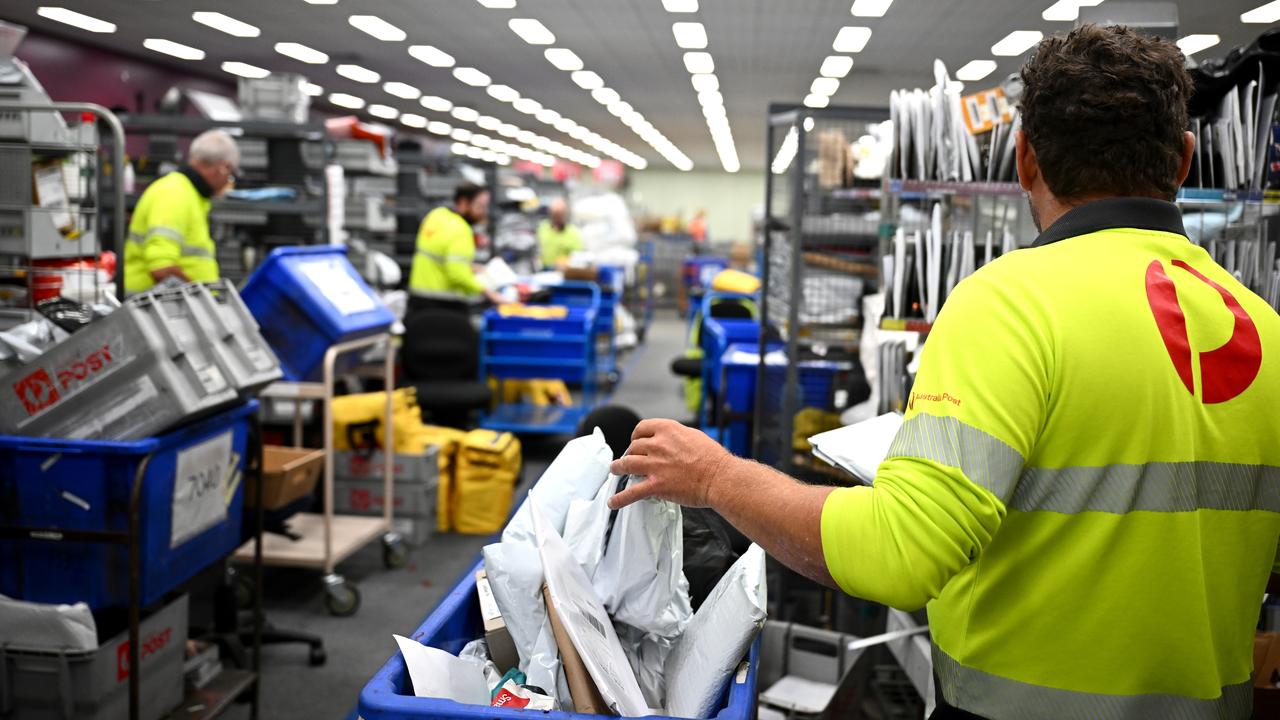
The company flagged further postage fee rises would be needed to address the growing cost of the service.
The company invested $371.9 million in fleet, technology and facilities during the year, including a parcel-processing facility at Melbourne Airport, delivery centre at Blacktown in NSW, and parcel and letters facility at Narrandera in regional NSW.
Australia Post could not afford to be complacent about its operation, Mr Graham said, amid growing competition for parcel deliveries.
“Competition in the parcels market remains fierce, with global online marketplace retailers ramping up their presence in Australia,” he said.
“We are facing sector-wide headwinds like many other global postal operators.”